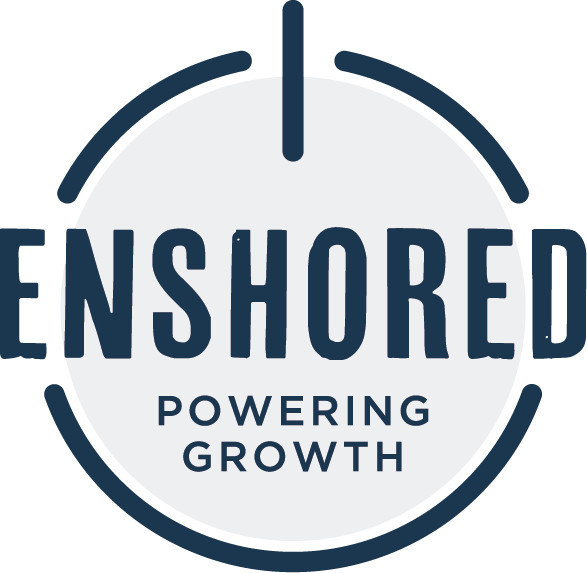Taking too long? Close loading screen.


“Congratulations”—your support inbox just hit an unwanted milestone: 1,000 unread messages. Your three-person team is drowning, your latest feature launch is behind schedule, and your biggest customer just threatened to leave. For many start-ups, this is the moment they first consider whether to outsource customer service. The real question isn’t whether you need help—it’s whether customer service outsourcing makes sense for your growing business.
Small business customer service outsourcing isn’t a one-size-fits-all solution, so let’s get real about where you stand. Your start-up should consider outsourcing if:
However, outsourcing customer service to a BPO provider like Enshored isn’t always the answer for every start-up. We’ll get into this more below, but, in summary, you should hold off if your product is still in beta with rapidly changing features, you’re getting less than 50 support tickets weekly, or your current team resolves most issues in under 4 hours. You might also want to wait if you need deep technical expertise that’s hard to transfer, or if your support process isn’t documented or standardized yet.
Identifying the right moment to outsource customer service for your small business means watching for specific triggers.
For example, when you can’t meet the 4-hour response time that 46% of customers expect, it’s time to consider your options.
One travel platform we worked with at Enshored recognized this trigger and acted. When travel restrictions eased post-Covid, they faced a surge in demand. We put an outsourced customer service solution in place that helped them grow from 15 to 400 support agents in 18 months, handling 80% of global chat interactions. The result? They maintained 92% customer satisfaction while handling 247,000 support tickets in 2022.
Focus is another red flag. If your technical staff spends more time on support than development, you’re hitting a critical point. Studies show that 70% of consumers expect companies to collaborate internally so they don’t have to repeat information, but when internal teams get stretched, this coordination suffers.
Global growth demands can be another trigger. Consider the robotic vacuum company that came to us before their U.S. launch on Amazon Prime Day. They needed to quickly scale customer support while maintaining quality — a common challenge for growing start-ups.
Within just 10 days of choosing to outsource customer service to Enshored, their new team:
This rapid scaling proved crucial, and their success hinged on timing — they implemented outsourcing before their big launch, not after problems arose.
So you’ve decided your start-up should outsource customer service. Now what? Making customer service outsourcing work for your small business means executing on that decision. Let’s break down a proven approach based on successful implementations.
Step 1: Baseline Your Current Performance
Before you start, document your current reality. For the health tech start-up that successfully made this transition, their initial assessment revealed some sobering truths: response times had crept up to 7.5 hours, far beyond the 6-hour window that 85% of customers expect. This baseline gave them clear targets for improvement.
Step 2: Define Success Metrics
Begin by tracking your key metrics for at least two weeks. This includes response times, customer satisfaction, and resolution rates—but also your current volume, busiest hours, top issues, and team capacity. You’ll be glad you did when you’re ready to outsource customer service.
Next, define what success looks like for your start-up. Create your own success metrics by considering:
Step 3: Plan Your Knowledge Transfer
This is where small business customer service outsourcing often goes wrong: they overlook knowledge transfer. Remember, 71% of consumers expect companies to understand their unique needs — and you can’t meet this expectation without a robust training and documentation process.
The health tech start-up’s dramatic improvement—cutting response times from 7.5 hours to 18 minutes—didn’t happen by accident. They created a comprehensive knowledge transfer program that included:
Step 4: Plan Your Launch
Before moving ahead with outsourced customer service for your small business, prepare a clear transition timeline. The robotic vacuum company’s successful phased roll-out provides a masterclass in this approach:
Step 5: Monitor and Optimize
Once you outsource customer service, your role shifts from manager to partner. Schedule regular check-ins to review your key metrics and make adjustments. The most successful start-ups treat the first three months as a learning period, staying closely involved and providing constant feedback.
Don’t treat outsourcing customer service for your start-up as a one-and-done solution. The travel platform that grew from 15 to 400 agents maintained their stellar 92% satisfaction rate through regular monitoring and optimization. They treated their outsourced team as an extension of their company, not a separate entity.
Outsourcing customer service for a start-up can transform operations, but timing is everything. Let’s explore when you should step back and reassess.
Undefined Service Standards
When 78% of service representatives say customers expect more personalized experiences than ever, launching an outsourced team without clear standards risks your customer relationships. First, document your:
Response protocols
Customer communication style
Common issue resolutions
Success metrics
Unstable Product or Service
A health tech start-up learned this lesson when they initially tried to outsource customer service during their beta phase. With features changing weekly, their support team couldn’t stay current. They paused, stabilized their product, and then successfully relaunched their outsourcing program — eventually achieving that impressive 18-minute response time.
Lack of Self-Service Resources
With 67% of customers preferring self-service over speaking to a representative, rushing to outsource customer service without a knowledge base can backfire. (In fact, 91% of customers say they would use an online knowledge base if one was available.)
Use this decision framework to make your final decision about customer service outsourcing:
Score your start-up on these factors using numbers between 5 and 1.
Response Time Pressure
5: Currently exceeding six hours
3: Hovering around four hours
1: Consistently under two hours
Growth Trajectory
5: Experiencing or expecting rapid growth (like the travel platform’s 15 to 400 agent scaling)
3: Steady growth
1: Early stage/pre-product market fit
Support Complexity
5: Mostly routine questions (remember, 60% of US consumers prefer automated self-service for simple issues)
3: Mix of routine and complex
1: Highly technical issues requiring deep product knowledge
Resource Allocation
5: Technical team spending >25% time on support
3: Dedicated support team at capacity
1: Support needs fully met by the current team
Total Score Guide:
If you scored between 16-20, you’re likely ready to outsource customer service for your start-up. A score of 11-15 means you might want to begin exploring options, and if you scored less than 10, you should focus on optimizing internal processes first
Research suggests 72% of customers switch companies after a single negative experience, so timing this transition right is crucial for your start-up’s success.
Here’s what might surprise you: the most successful start-ups don’t view customer service outsourcing as a final destination. They see it as the beginning of a larger transformation.
Take the travel platform we mentioned above. Their real victory wasn’t just in numbers — it was in how they used outsourcing to reshape their entire customer experience. While 70% of customers say technology makes it easy to switch to competitors, they turned this threat into an advantage. Their outsourced team became a direct line to customer insights, feeding valuable data back into product development.
Looking ahead to 2025 and beyond, this approach becomes even more critical. The most forward-thinking start-up leaders understand something crucial: customer service outsourcing is about more than handling today’s support volume — it’s about building tomorrow’s competitive advantage. In other words, when you’re considering whether your start-up should outsource customer service to a BPO partner, think about how to use outsourcing to transform your entire approach to customer experience. The real opportunity lies not in simply meeting expectations, but in completely redefining them.
Anticipating growth?
Access the tools, tech & team you need to scale globally.

Serious about scaling?
One call is all it takes to know if we’re a fit.
© 2024 Enshored · Privacy · GDPR · California · Cookies